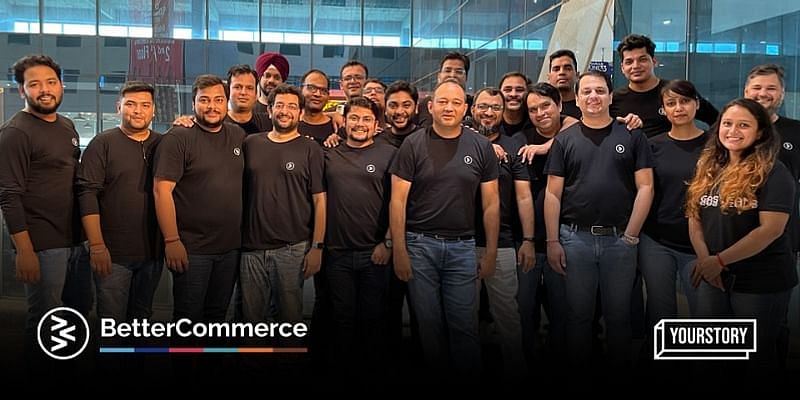As technology makes it convenient for more businesses to launch, customer convenience to buy from these businesses has also increased manifold.
In today’s market, a commerce stack can be a hassle to manage, especially for a growing business as it requires an army. Commerce stacks also vary based on the size and nature of the retail business as an online-only brand would have different technology requirements from a brand that is present offline and is now planning on moving online or vice-versa. Hence, there cannot be one platform or solution that can fit all.
Platforms such as Shopify and WooCommerce offer solutions that are ideal for businesses just starting their D2C journey. However, as these businesses scale, these solutions become clunky and challenging to manage due to too many third-party integrations and limited features, depriving any growing ecommerce brand of the capabilities it requires at scale.
BetterCommerce, therefore, finds its purpose in supporting mid-market retailers that are on their journey to scale and require a commerce stack solution that is fast, flexible, and holistic.
Here are some challenges that BetterCommerce helps solve:
Too many third-party plugins
BetterCommerce believes that point technologies work well. However, core commerce dependencies on third parties are treacherous for businesses at scale. If any one of the services stops or malfunctions, it would impact the entire business. Hence to manage this, businesses tend to hire internal tech teams and/or external agencies to keep processes going round the clock – at the cost of time and resources that could have been used to bring innovation to customer experiences. BetterCommerce offers out-of-the-box inbuilt capabilities, which significantly reduce dependency on several third-party plugins/vendors to a minimum.
Limited customisations
Most current platforms like Shopify (Liquid), WooCommerce (PHP), and Magento (PHP) require enormous time, effort, and cost for customisations to enhance customer experience. This restricts the level of customisations one can achieve to create a seamless customer shopping experience for various touchpoints. With an API-first headless architecture, the dependencies on the ecommerce backend platform are none. Businesses can build a high-performing react-based storefront or native mobile app and just use BetterCommerce Suite of Commerce APIs to deliver seamless experiences across any device or touchpoints.
No central commerce hub
At scale, most businesses want to build mobile apps, open kiosks, or establish offline stores. The most critical element at this phase is to have a central commerce hub, which can allow businesses to have all their touchpoints inter-connected so they can understand customer behaviour better and make decisions faster. By the nature of BetterCommerce architecture, the commercial hub is completely built in a way that it can connect to any touchpoint using APIs and allow businesses to drive the whole business from one backend.
Scalability challenges
While on the journey to scale, businesses require all the processes and SOPs to align together to resonate with the growth story. With disjointed systems and a lack of access to centralised data, it is impossible to undertake a true digital transformation. Some businesses spend years without understanding the potential value of the investment and hence most such projects fail.
High and unpredictable TCO
BetterCommerce is agile, flexible, and yet comprehensive. With most of the features built on micro-services API-based architecture, the overall time to market is faster than most solutions out there in the market. With limited need of third-party plugins and different components of a commerce stack, it offers everything at one place – reducing the TCO significantly. Having packaged business capabilities that deliver an end-to-end commerce stack, BetterCommerce offers an overall predictable TCO, which is also lower than most of enterprise-grade ecommerce solution providers in the market today such as Salesforce Commerce Cloud, SAP Hybris, or even Shopify Plus.
Broadly, BetterCommerce is a comprehensive commerce stack that addresses the huge tech gap for mid-market retailers. It enables technology to be an enabler for businesses’ growth journey by providing agility, lower TCO, faster time to market, and flexibility. It is an ideal platform for businesses that have outgrown their current commerce platform or stack, and require a modern composable commerce architecture to future-proof their business.






![Read more about the article [Funding alert] Noida-based CRMNEXT raises $16M in Series B co-led by Avataar Ventures, Ascent Capital](https://blog.digitalsevaa.com/wp-content/uploads/2021/07/Imageq846-1625727096089-300x150.jpg)

![Read more about the article [Funding alert] Fintech startup slice raises $20M from Gunosy, Blume Ventures](https://blog.digitalsevaa.com/wp-content/uploads/2021/06/Image36rr-1615958751816-300x150.jpg)

